20+ SAMPLE Performance Report
-
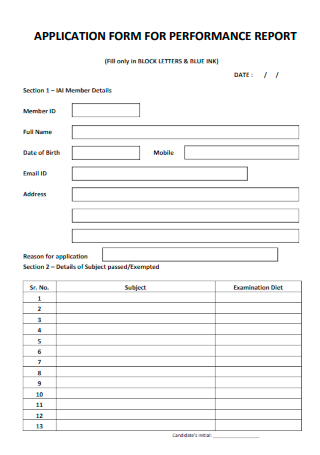
Application Form of Performance Report
download now -
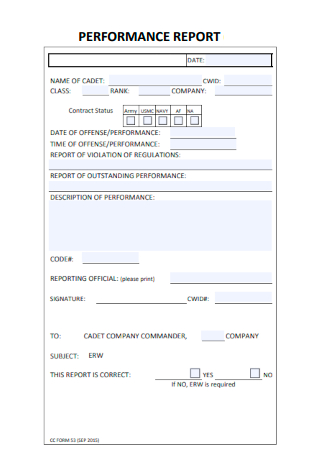
Sample Performance Report
download now -
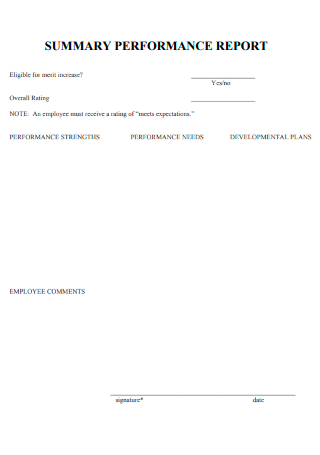
Summary Performance Report
download now -
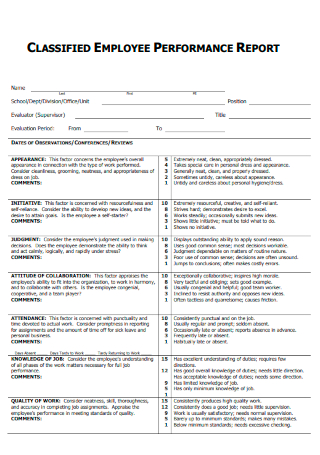
Classified Employee Performance Report
download now -
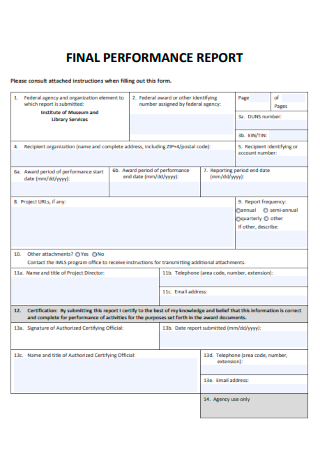
Final Performance Report
download now -

Outline of the Performance Report
download now -
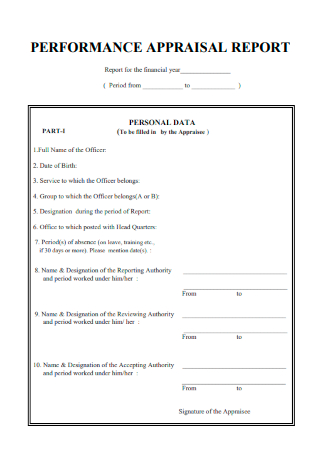
Performance Appraisal Report
download now -
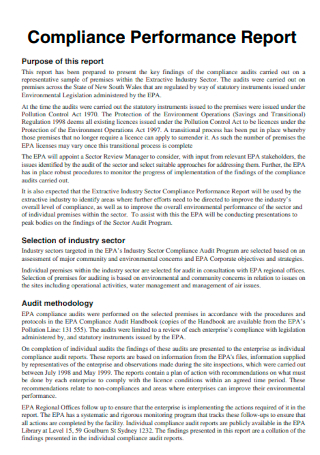
Compliance Performance Report
download now -
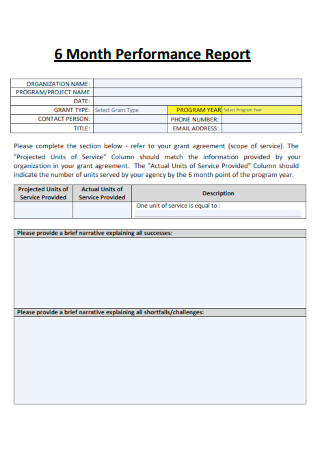
6 Month Performance Report
download now -
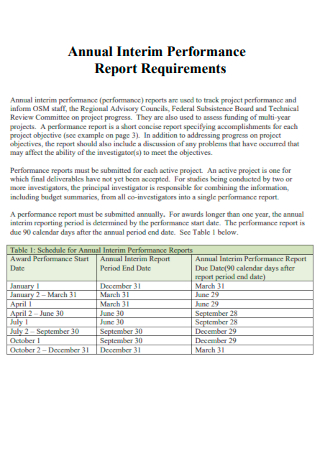
Annual Interim Performance Report Requirements
download now -
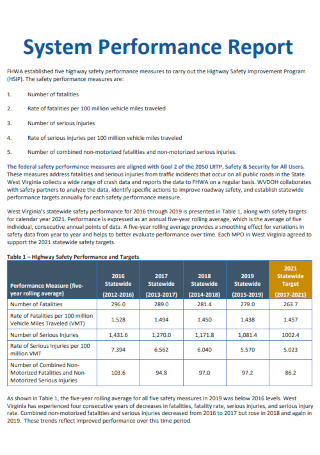
System Performance Report
download now -
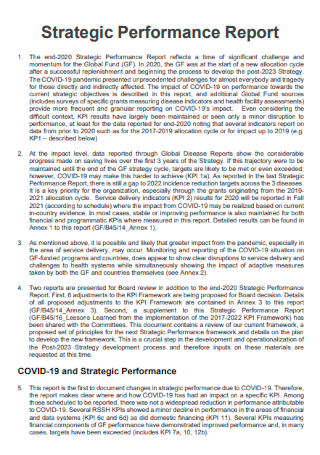
Strategic Performance Report
download now -

Corporate Performance Report
download now -
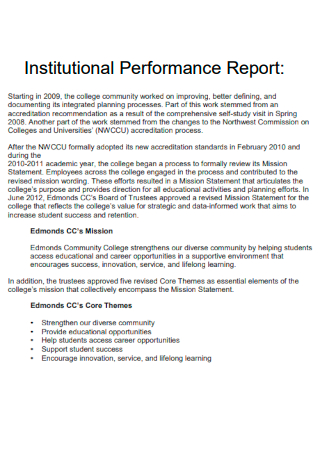
Institutional Performance Report
download now -
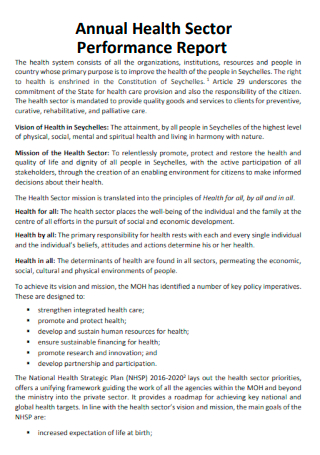
Annual Health Sector Performance Report
download now -
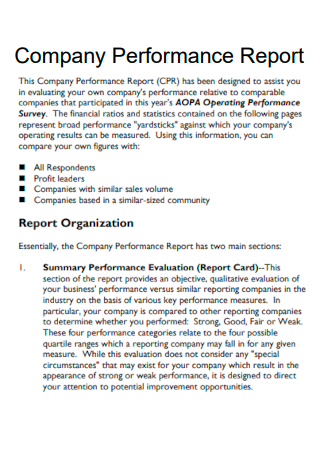
Company Performance Report
download now -
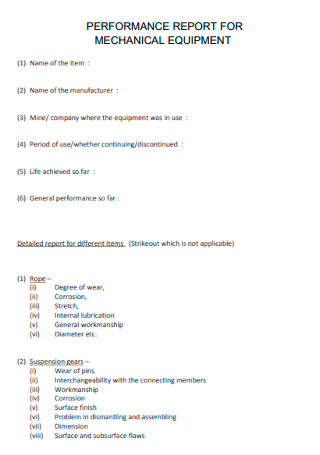
Performance Report for Mechanical Equipment
download now -
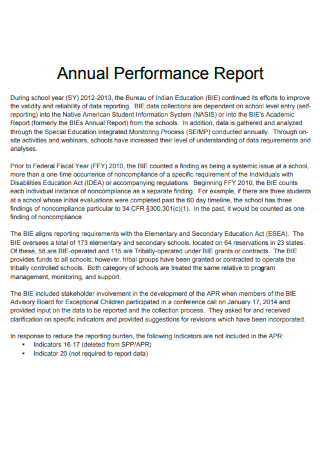
Annual Performance Report
download now -
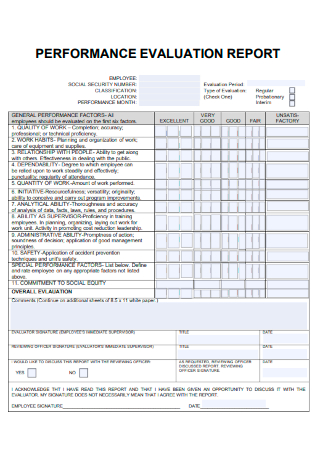
Performance Evaluation Report
download now -
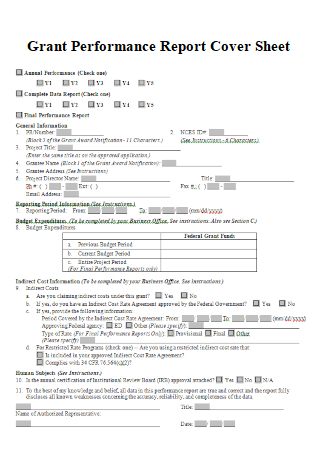
Grant Performance Report Cover Sheet
download now -
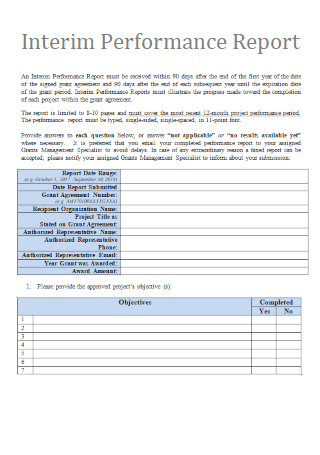
Interim Performance Report
download now
What Is a Performance Report?
A performance report is a formal report that assesses and summarizes the performance of an employee, student, program, or anything similar or related.
According to an online article published by Gallup, a small percentage of only 14% of employees strongly agree that performance reviews inspire them to improve. As much as $35 million per year is lost in working hours for an organization of 10,000 employees to participate in performance evaluations. Moreover, the same article further states that just 22% of employees strongly agree that pay and other incentives motivate them to do what is best for their company.
How Can I Improve My Performance?
How one can improve their performance in school, at the workplace or in general has always been the universal question. In pursuit of growth and development, the need for improvement has always been at the core of the pursuit. So what can you do to improve your performance? The following examples below are some simple yet powerful tips that can help augment and boost your performance.
Sample Areas of Performance
There can be many ways to improve one’s performance. Of course, the criteria for measuring performance will usually depend on the evaluating body. From technical skills to interpersonal qualities, the range of different areas can be broad and comprehensive. The following examples described below are just some examples of specific performance areas that may be subject to evaluation.
How to Create a Performance Report
To create a performance report, you need to be as objective as possible. There is no room for biases and subjective judgment in a formal performance report. And if you are looking for quick and reliable sample templates to use as reference, download any of the free sample reports above. Choose one that suits your needs and follow the step-by-step guide below.
Step 1: Basic Information
The first step is covering all the basic information first. You need to provide details regarding the subject of the performance report. Whose performance is being evaluated? In a lot of cases, employees are subject to regular performance appraisals. This is to determine if the employee is productive and competent to maintain their position or job. Don’t forget to include the complete name, designation of the candidate, and the date of evaluation. You may also include what department they are under, contact information, employee ID number, and other relevant details.
Step 2: Rubric
The next step is establishing a rubric or measure that will enable you to grade your subject accordingly. There has to be a measure in place to objectively and fairly rate the performance of an employee. A standard criteria will ensure that all candidates subject to evaluation will be treated fairly and equally. Of course, each job or role may have a different set of criteria or rubric. Essentially, this section is meant to be a guide or reference for the evaluator to use. Be sure to include brief instructions or a clear directive as to the use of the rubric. The evaluator should be able to easily comprehend it.
Step 3: Score and Rating
Once you have established the appropriate criteria, you can then proceed to the actual evaluation. This section is basically the meat of your report. As the evaluator, it is your duty to help the subject improve and learn. The candidate is relying on you to give a fair assessment and judgment of their abilities. It is important to be objective and fair when rating or grading. If you are unsure of how to proceed, you can start by assessing both the candidate’s strengths and weaknesses. Highlighting the positive but also addressing the negative is both a reasonable and practical approach to grading.
Step 4: Recommendations
In a performance report, you do not just end with the final rating or score. You have to include recommendations for the employee to consider and take home. There must be prescriptive and concrete recommendations that the candidate can use. As an evaluator, it is important for you to indicate the next steps in order to help the candidate improve their work performance. The main purpose of a performance report, after all, is to help the employee address any weak areas and maximize their potential. Using the same approach in grading, be sure to exercise objectivity, clarity and fairness when stating your recommendations.
FAQs
What is a performance report?
A performance report is a formal written report that is used to gauge an individual’s performance at work, school or any professional environment. It is typically used as a basis to decide whether or not the individual is productive in their current role or position.
How do you write a performance report?
To write a performance report, you need to have a good idea of the candidate’s role or job. Using a standard rubric can help you make a more informed and objective rating. You can refer to the guided tutorial in the previous section for more detailed instructions on how to create a performance report.
What are performance reports used for?
Performance reports can serve several purposes. Typically, it is a report used to evaluate an individual’s performance at work or at school. But it can also be used to gauge a program or project’s success.
Creating a fair and objective performance report should be the primary goal of every evaluator. The point is to help the candidate succeed and improve. Browse the sample templates above to start customizing your own performance report today!
